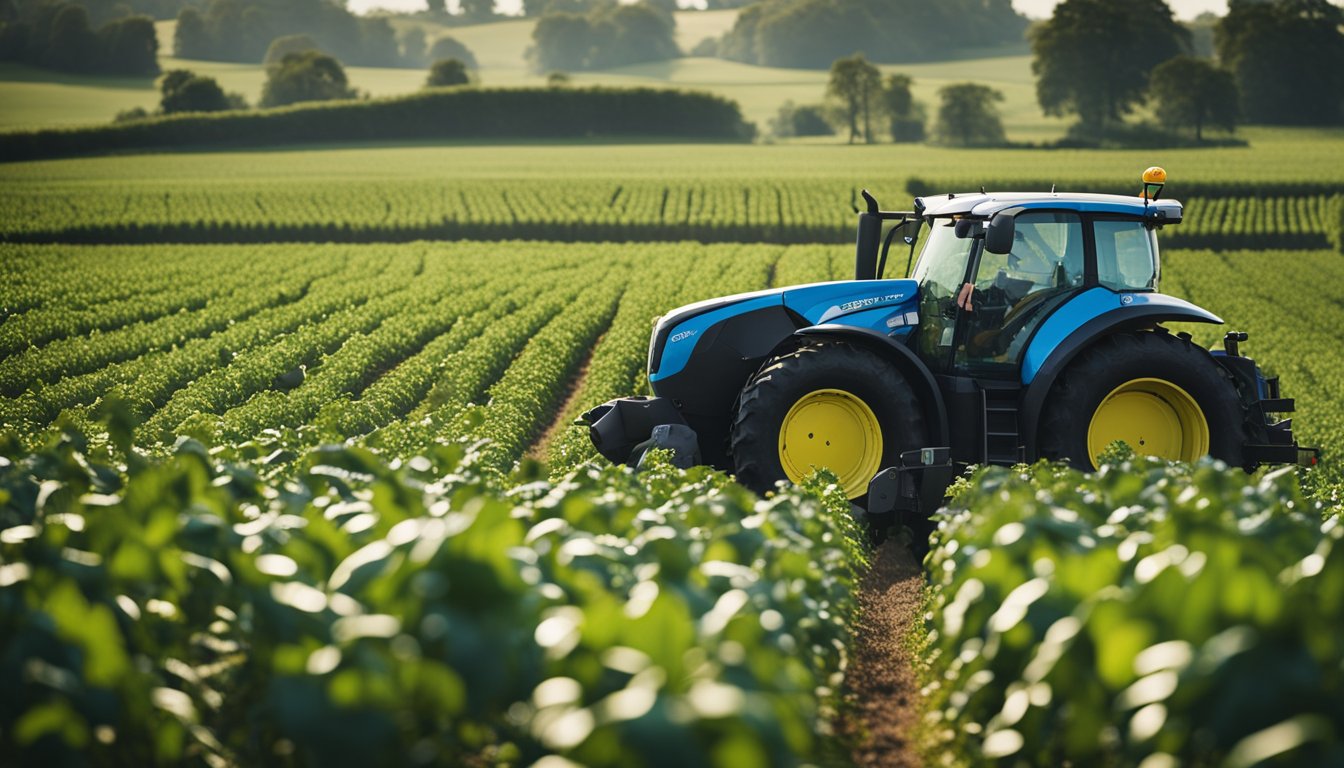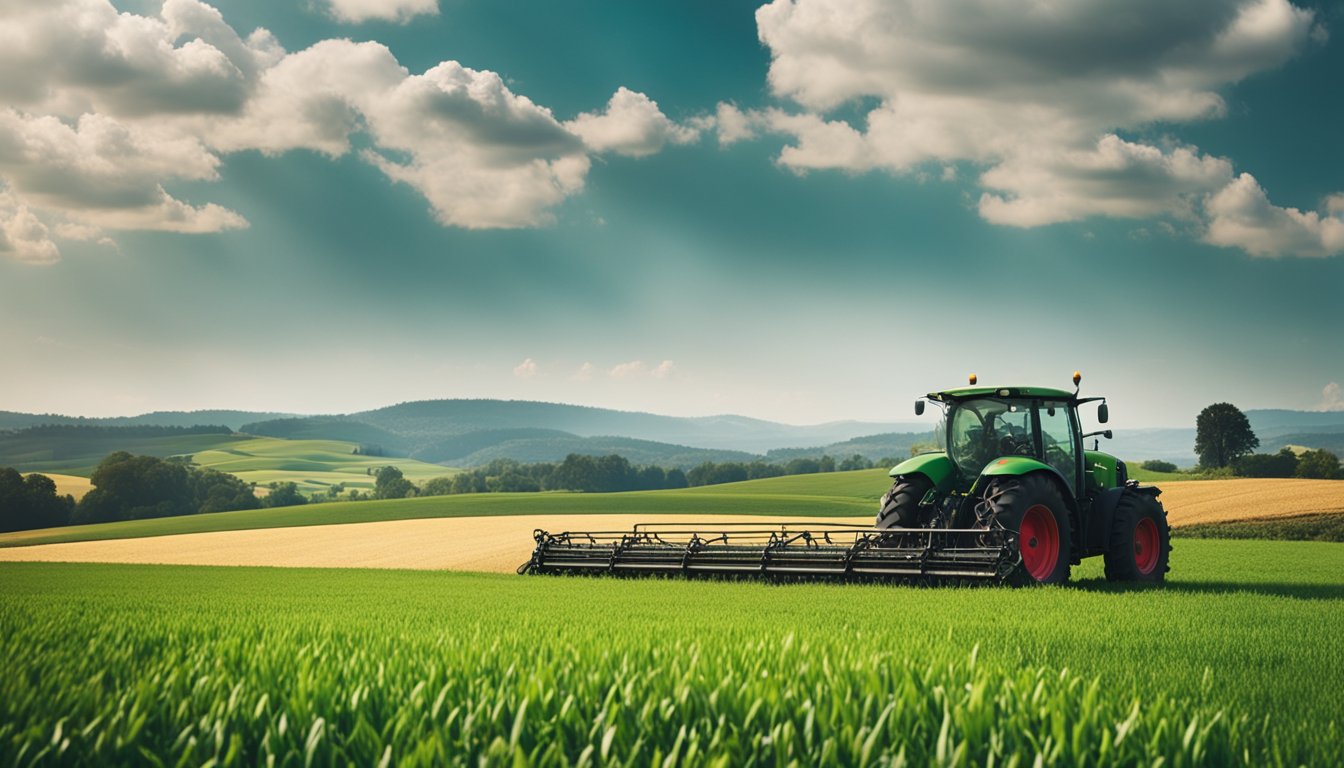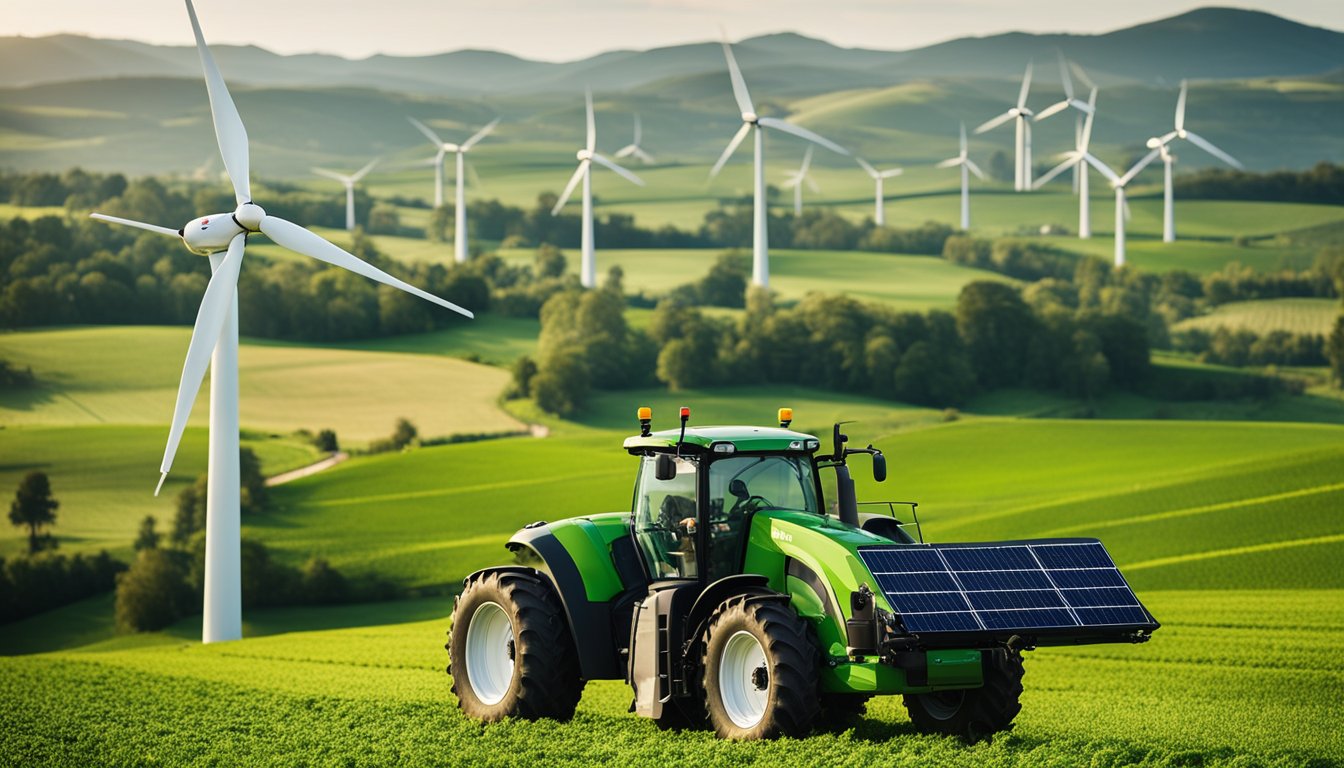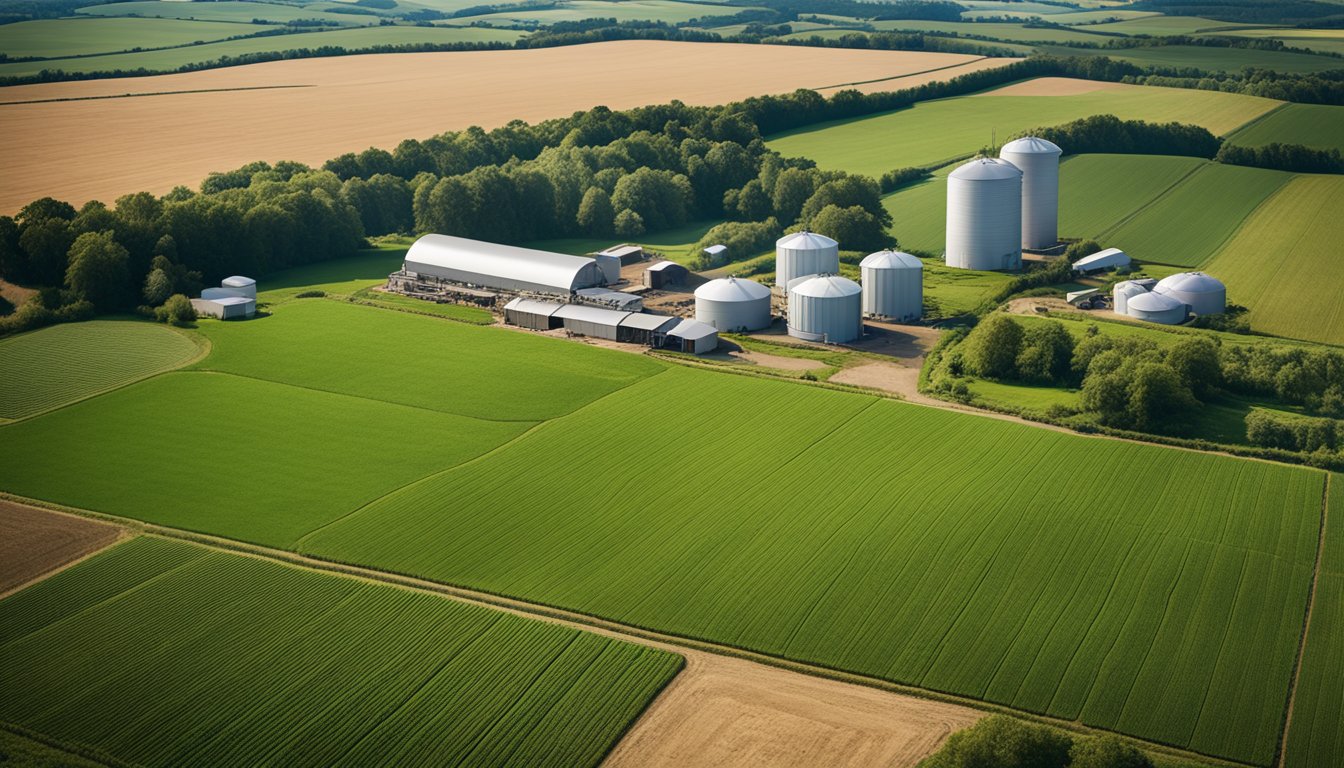Late updated: 03 Jan 2025 13:01
Written by: Oliver Bennett
Rural UK's Future With AI in Farming Practices: Transforming Agriculture
The future of agriculture in rural UK is being reshaped by the transformative power of artificial intelligence. From AI-driven decision-making to precision agtech solutions, these innovations are set to revolutionise farming practices and elevate productivity. In our exploration, we discuss how AI and digital twins are allowing farmers to simulate environments, enhancing crop yields and sustainable practices. AI technologies are proving to be indispensable tools in our pursuit of efficiency and sustainability in rural agriculture.

As we move forward, it's crucial to acknowledge the significant impact these technologies have on food security and the overall agritech landscape. The support from government initiatives has fueled widespread adoption, positioning the UK as a leader in smart farming. These changes bring not only enhanced productivity but also new ethical considerations and job creation in these rural areas.
The integration of AI in farming practices does more than simply increase efficiency; it offers new avenues for sustainability. With advancements like autonomous tractors and AI-driven agroecological systems, we are not just participating in an agricultural revolution but are committed to crafting a future where technology harmoniously blends with environmental stewardship.
Key Takeaways
- AI boosts productivity and sustainability in agriculture.
- Government support accelerates agritech adoption.
- New technologies enhance food security in rural UK.
AI-Driven Agricultural Revolution

Artificial Intelligence is reshaping the landscape of rural farming in the UK. By integrating advanced technologies, we are witnessing improvements in smart farming, better crop and livestock management, and implications for resource efficiency and food production.
Advancements in Smart Farming
Smart farming integrates AI technologies, like machine learning and digital twins, to optimise agricultural practices. Digital twins simulate crop growth, assessing conditions such as soil health and biodiversity, helping to forecast yields.
Precision farming using real-time data enhances this process by allowing farmers to adjust inputs precisely where needed. Robotics and advanced machinery further contribute to an efficient system, automating tasks like selective harvesting. This combination not only boosts productivity but also contributes to more sustainable farming practices.
Enhancing Crop and Livestock Management
AI's role extends deeply into management practices. In crop monitoring, computer vision systems detect signs of diseases or pests early. This early detection leads to proactive measures, significantly improving crop health. Enhanced monitoring of soil health supports decisions around fertiliser use, ensuring sustainable nutrient management.
AI-driven systems in livestock management aid in maintaining animal health and welfare. Technologies monitor conditions to prevent illnesses, support breeding programmes, and optimise feeding routines. These innovations are crucial for year-round cultivation and sustaining food security in the face of climate challenges.
Implications for Resource Efficiency and Food Production
Resource efficiency is pivotal in today's farming, with AI technologies offering a path to reduce the carbon footprint and greenhouse gas emissions. Through precise resource allocation, such as water and fertiliser, we can minimise waste. AI systems help balance high crop yields with reduced inputs, maintaining biodiversity and ecological balance.
Vertical farming also plays a role, facilitating year-round cultivation in controlled environments. This approach directly supports food production by overcoming labelling shortages and ensuring consistent output. By focusing on sustainability, AI helps meet the growing demands while preserving our environment for future generations.
Sustainability and Ethical Considerations

Our exploration into the sustainability and ethical considerations of AI in rural UK farming practices highlights several critical themes. We examine how AI contributes to reducing environmental impact, promoting sustainable farming methods, and its influence on rural communities.
Addressing Climate Change and Environmental Impact
AI technologies can significantly lower greenhouse gas emissions and adapt to climate change challenges by enhancing operational efficiency. UK Agritech initiatives use AI to optimise resource use, thus reducing methane emissions from livestock.
Our focus includes understanding the role of AI-powered digital twins and microbial analysis, improving strategies to mitigate emissions further. By utilising data-driven models, we aim to foster a more sustainable agricultural environment, ensuring agriculture remains compatible with climate objectives.
Promoting Sustainable Agricultural Practices
AI-powered innovations support sustainable agricultural practices through precision farming and crop resilience enhancements. The Smart Farming Model, combining AI with machine learning and robotics, elevates operational efficiency.
Indoor farming and disease prediction technologies become vital in sustaining yields despite climate pressures. Additionally, initiatives like the Beeftwin Project target sustainable beef farming, improving calf mortality rates and contributing to the food sustainability goals for a growing population.
Influence on Rural Communities and Educational Sectors
AI's role extends beyond farming practices, influencing rural communities and the educational landscape. Educational institutions like Riseholme College integrate AI into curricula, preparing future generations for agritech innovation.
As we navigate labour shortages, AI offers paths to more efficient farming solutions. Collaboration and innovation support government policies in rural areas, ensuring farming remains effective and profitable. By tapping into AI, we enhance management sciences and ensure prosperous futures for rural communities.
Frequently Asked Questions

Artificial intelligence is transforming agriculture in rural UK areas by enhancing productivity, sustainability, and farm management practices. Here, we explore its implications and the adaptation of British farmers to these advances.
What are the practical applications of AI in improving agricultural productivity in rural UK areas?
AI technologies are utilised to streamline various agricultural processes, including automated machinery for planting and harvesting. This leads to increased efficiency. In addition, AI-driven data analysis helps in understanding weather patterns, enabling better planning and reducing crop loss risk.
How might AI contribute to sustainable farming practices in the UK countryside?
By optimizing resource usage, AI aids in reducing waste and conserving water and energy. Smart sensors help monitor soil conditions, ensuring only necessary treatments are applied. This precision enhances yield while supporting the environment, aligning with sustainable farming goals.
What role does artificial intelligence play in crop monitoring and management in the UK's rural farms?
AI facilitates precise crop monitoring through satellite imagery and drones. These technologies provide real-time data on plant health, growth stages, and pest infestations. Such insights enable farmers to make informed decisions on interventions, thus improving crop management and efficiency.
How could the utilisation of AI in farming affect employment in rural UK communities?
AI can initially reduce the demand for certain manual labour roles due to automation. However, it also creates new job opportunities in technology maintenance and management. Thus, the workforce may evolve, with a need for new skills and training to support AI systems.
What are the potential environmental impacts of integrating AI technology into UK's rural farming practices?
AI contributes positively by enhancing resource efficiency, which reduces the carbon footprint of farming operations. Nevertheless, the increased use of technology might lead to concerns regarding electronic waste and energy consumption, necessitating thoughtful management and disposal of tech components.
In what ways are UK farmers adapting to the introduction of AI and smart farming equipment?
Farmers are increasingly adopting AI tools and education in digital farming techniques. Training programs and government support are aiding this transition, equipping farmers with knowledge to effectively use smart equipment and integrate AI solutions into their traditional agricultural practices.
